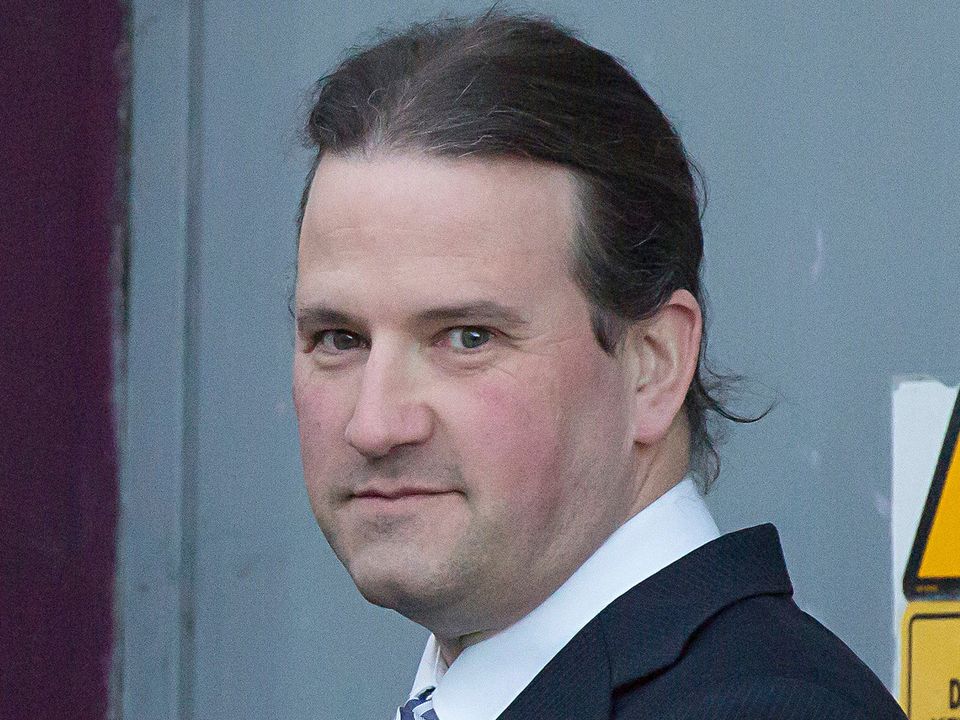legal action |
Killer Graham Dwyer’s prison laptop was seized on suspicion he downloaded pornography
Prison sources confirmed the computer was taken from Dwyer in the Midlands Prison as he prepared for his murder appeal

Today at 17:44
Murderer Graham Dwyer’s legal action against the Irish Prison Service and the State centres on the seizure of a prison-issue laptop amid concerns he used it to download pornography, the Sunday World can reveal.
Prison sources confirmed the computer was taken from Dwyer in the Midlands Prison as he prepared for his murder appeal. However, no pornography was found.
The laptop was handed to detectives in Dublin who had been involved in securing Dwyer’s conviction for the murder of childcare worker Elaine O’Hara.
His plenary action is being brought against the Irish Prison Service, the minister for justice and the attorney general. The case includes claims for damages for alleged negligence, alleged breach of privacy rights and rights under the Data Protection Act and alleged breach of statutory duty.
The High Court proceedings on behalf of Dwyer, who is in the ninth year of his life sentence, were initiated 10 days ago, but have still to come before the court.
Dwyer is being represented by Dublin law firm Harringtons LLP, which specialises in personal injury litigation and criminal defence cases. Solicitor and partner David Harrington declined to comment on the specifics of the action.
The prison service also declined to comment, saying: “The Irish Prison Service does not comment on individual prisoner cases.”
A limited number of laptops are available to prisoners, mainly for those involved in studies.
Some devices have limited access to the internet in order for documents to be downloaded as part of course work and to submit assignments.
Prison sources acknowledged there have been instances of prisoners who have tried to access the internet for illicit purposes, such as accessing pornography by using an unauthorised mobile phone in tandem with the computer.
Dwyer’s action comes while judgment is awaited from the Supreme Court on his appeal against his 2015 conviction by a unanimous jury verdict at the Central Criminal Court. A decision on the Cork architect’s appeal is expected by the end of the week.
A source who is familiar with but unconnected to Dwyer’s case said it has “been noted” in legal circles that he has changed his legal representation.
Criminal defence solicitor Phelim O’Neill is the other partner at Harringtons LLP and specialises in murder cases.
These include Stephen Silver, who murdered Garda Colm Horkan, and Sameer Sayed, who died by suicide shortly before his trial for killing his wife Seema Banu and their two young children.
One source said “legal gossip” is that Dwyer has strategically changed his lawyers so that, should his Supreme Court appeal succeed, he will be in a position to be represented by Mr O’Neill for his retrial. The solicitor declined to comment.
Last month, the Supreme Court heard Dwyer’s latest appeal, which centred on the admission of call data records during his trial. Following his conviction, he set about challenging the legislation under which the data was seized.
He secured rulings in his favour in the High Court, Supreme Court and Court of Justice for the European Union. While these bolstered his bid to overturn his conviction, they were not sufficient to convince the Court of Appeal to acquit him or order a retrial.
The court said last year that, in its view, no miscarriage of justice had occurred arising from the admission of the very limited call data record evidence.
Even if the court had concluded that the evidence should not have been admitted, it would still have dismissed the appeal.
The Supreme Court subsequently agreed to hear a further appeal.
Ms O’Hara disappeared in August 2012, and her remains were found in a forest at Killakee in the Dublin Mountains 13 months later.
The DPP’s case was that she was murdered by Dwyer for his sexual gratification. It relied in part on mobile phone evidence, including the context of text messages between three mobile phones attributed to Dwyer and two to Ms O’Hara, as well as call data records relating to the phones.
One of the phones was Dwyer’s work mobile. Call data relating to it was relied on to attribute two other unregistered phones to him, thereby linking him to text messages he had exchanged with Ms O’Hara on the unregistered phones.
The texts helped establish the nature of their relationship and the fact he wanted to kill her. The content of text messages also helped identify Dwyer as it reflected events in his life.
The Court of Appeal found there was other evidence to link Dwyer to two unregistered phones, independent of the call data records, that was “as powerful and perhaps more compelling”.
